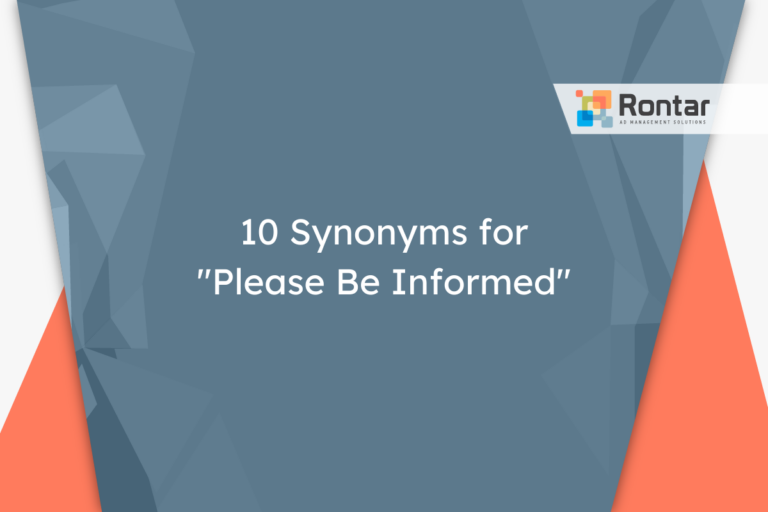10 Other Ways to Say “What Time Suits You Best?”

Scheduling meetings or calls in a professional environment can often require a careful choice of words. You want to be respectful, yet flexible, making sure the other person feels their time is valued.
This article offers 10 different ways to ask “What Time Suits You Best?” in a work setting. Each alternative is designed to match various levels of formality and situations, ensuring you communicate effectively and politely.
Is It Professional to Say “What Time Suits You Best?”
The phrase “What time suits you best?” strikes a balance between being professional, formal or informal, and polite. This phrase is particularly suited for situations where you want to show respect for the other person’s schedule and preferences.
It’s ideal for correspondence with colleagues, clients, and people you may not be familiar with personally but have a professional relationship with. It works well in emails, work chats, and even phone calls, depending on the level of formality of the relationship.
Here’s an example:
Dear Emily,
I am writing to discuss our upcoming project meeting. To ensure we can accommodate everyone's schedule, could you let me know what time suits you best?
Best regards,
Tom
Pros:
- Shows consideration for the recipient’s time.
- Appropriate for a wide range of professional scenarios.
- Encourages a cooperative approach to scheduling.
Cons:
- May be seen as too open-ended, especially if the sender has a tight schedule.
- Could lead to a back-and-forth if the recipient has a flexible schedule.
Someone might want to use an alternative phrase if they are looking to be more specific about the timing or need to convey urgency.
10 Other Ways to Say “What Time Suits You Best?”
Here are some professional alternatives you can use to ask about scheduling a meeting or call in a workplace environment:
- When are you available?
- What is your availability like?
- Can we find a convenient time for you?
- Do you have a preferred meeting time?
- When is a good time for you?
- What’s the best time for a meeting on your end?
- Could you share your preferred timing?
- Are there better times for you to meet?
- Is there a time that works best for you?
- When would be a convenient time for you?
1. When are you available?
This alternative is straightforward and slightly more informal than the original phrase. It directly inquires about the recipient’s free time without implying preference on either side.
This alternative is better suited for quick, internal communications where formality is not a priority. It works well in emails or messages to colleagues who you have a comfortable rapport with, especially in a professional setting that allows for some flexibility in tone.
Example:
Dear Mark, I would like to discuss the project updates with you. When are you available to catch up this week? Kind regards, Lisa
2. What is your availability like?
This phrase is a bit more formal and gives the recipient the chance to provide a broader overview of their available times. It’s polite and shows consideration for the recipient’s schedule.
Use this alternative in emails when arranging meetings with clients or external partners whose exact schedules you’re unaware of. It’s a polite way to ask without imposing and works across multiple communication channels, including email and work chats.
Example:
Dear Alex, In preparation for the upcoming review, what is your availability like next week for a brief call? Best wishes, Jordan
3. Can we find a convenient time for you?
This question is accommodating and polite, showcasing flexibility on the part of the asker. It’s a more informal alternative that still retains professionalism.
It’s especially suitable for discussions where you want to emphasize your willingness to adjust to the other person’s schedule. Ideal for emails to clients or colleagues with whom you have a professional yet congenial relationship. It can also be used in texts or direct messages on professional platforms.
Example:
Dear Jamie, To ensure we're aligned on the project's next phases, can we find a convenient time for you for a brief meeting? Warm regards, Sophie
4. Do you have a preferred meeting time?
This alternative is direct and professional, applying a bit more formality while still appearing considerate. It suggests that you are ready to prioritize the recipient’s convenience.
This phrasing works well when scheduling important meetings or calls, especially with senior colleagues, mentors, or new clients. It’s most appropriate for email but can also be expressed over professional networking platforms.
Example:
Dear Mr. Thompson, Regarding our upcoming workshop, do you have a preferred meeting time that works best for you? Sincerely, Elena
5. When is a good time for you?
Similar to the original, this informal yet polite alternative directly asks for the recipient’s preferred timing in a relaxed manner.
This is better suited for conversations with team members or clients with whom you have established a friendly, comfortable dynamic. It’s a versatile option that fits emails, professional text messages, and even quick, informal checks during calls.
Example:
Hi Jordan,
We need to go over the quarterly sales strategy. When is a good time for you?
Cheers,
Tara
6. What’s the best time for a meeting on your end?
This version adds a slight formal edge to the inquiry, making it clear you are considering the recipient’s side of the scheduling equation. It is professional and suggests a mutual effort to find a common meeting time.
Great for reaching out to external partners or stakeholders for whom you want to show both respect and a degree of formality. This phrasing is ideal for emails or professional messaging apps.
Example:
Dear Dr. Collins,
To discuss the research findings, what’s the best time for a meeting on your end?
Regards,
Nina
This question is polite and meticulously professional, implying a readiness to accommodate the recipient’s schedule at their convenience.
It’s excellently suited for interactions with individuals you either don’t meet with regularly or those who have a tight schedule, like executives or clients. Use this alternative in emails or professional correspondences where formality is appreciated.
Example:
Dear Isabella, Ahead of our product launch planning, could you share your preferred timing for a detailed discussion? Best, Omar
8. Are there better times for you to meet?
This alternative is understanding and polite, offering the recipient the chance to suggest a more suitable meeting time if the proposed one isn’t ideal.
This version is particularly effective after you’ve already proposed a specific time and are trying to be accommodating to adjustments. It’s suitable for emails to colleagues or clients, showing flexibility in professional planning.
Example:
Dear Clara,
Following up on my previous email about the budget meeting, are there better times for you to meet?
Thanks,
Erik
9. Is there a time that works best for you?
This phrase is a considerate and polite way to inquire about availability, leaning slightly towards the informal side while still being professional.
It’s useful for scheduling meetings with both internal team members and external contacts. This alternative shows a respect for the recipient’s time and schedule, making it ideal for both emails and messaging applications in a professional context.
Example:
Dear Helen,
I’m looking to schedule our next session to finalize the design plans. Is there a time that works best for you?
Kindly,
Greg
10. When would be a convenient time for you?
This alternative is courteous and professional, striking a balance between formality and flexibility. It expresses a clear willingness to adapt to the recipient’s schedule.
Best used when organizing meetings with new clients, senior management, or external consultants. It demonstrates respect and consideration in professional emails and communications, ensuring you appear both accommodating and organized.
Example:
Dear Vanessa,
To discuss the upcoming project milestones, when would be a convenient time for you?
Best regards,
Derek
Final Thoughts
Finding the right words to ask for someone’s availability shows respect for their time and helps make scheduling smoother. The 10 alternatives provided give you a range of options to fit different professional contexts, from formal meetings to casual check-ins. By choosing the right phrase, you can improve communication and efficiency in the workplace.






